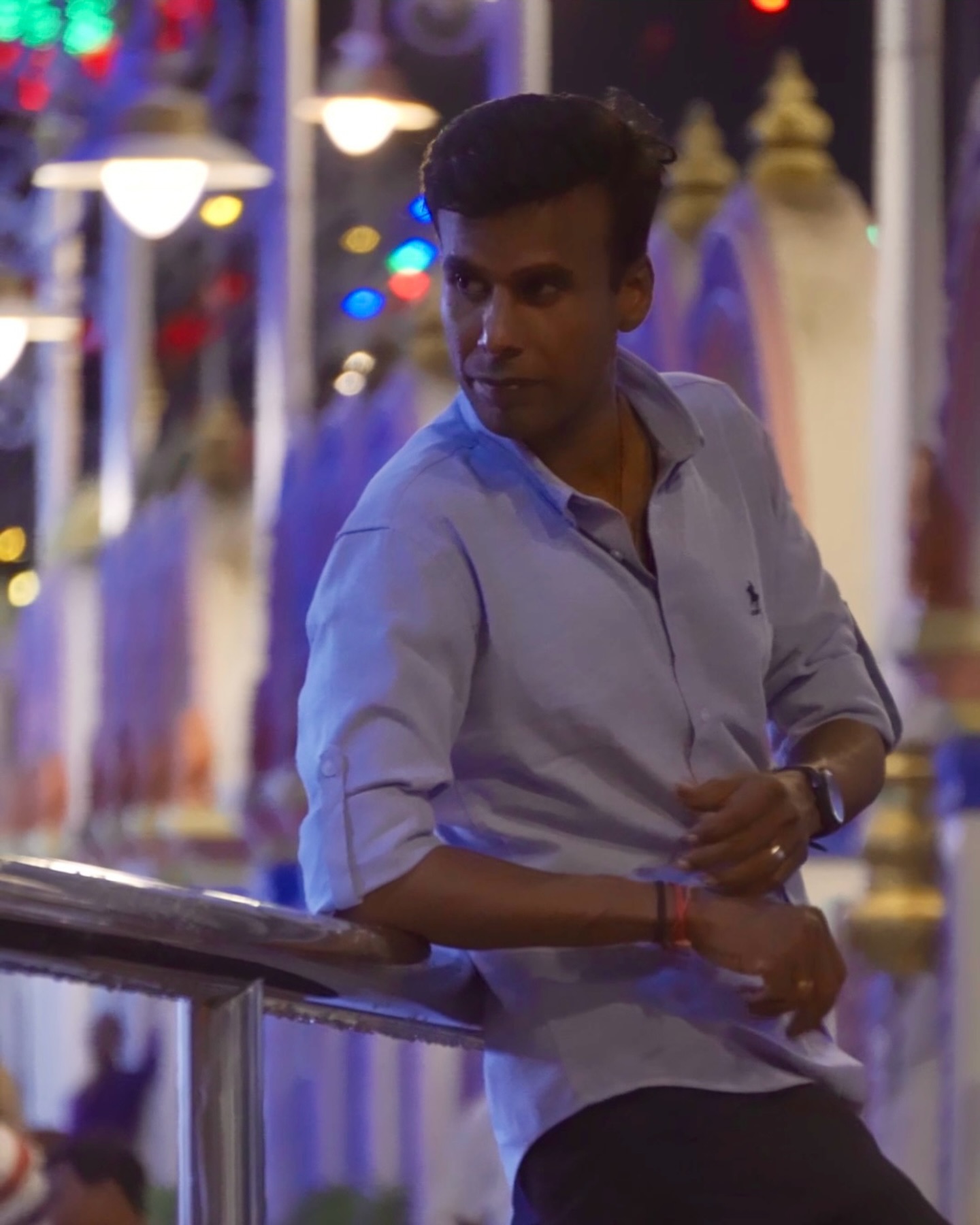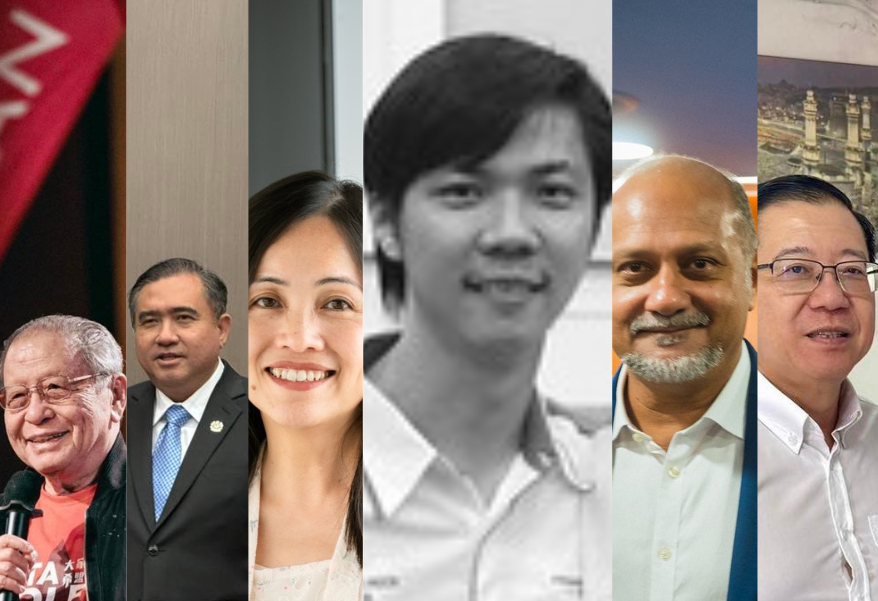
DAP Leaders and the Legacy of Teoh Beng Hock: From Protest to Power
24 Jul 2025 • 9:00 AM MYT

Annan Vaithegi
From sharing insights to creating content that connects and inspires

Image Source; Lim Kit Siang, Lim Guan Eng, Gobind Singh Deo, Anthony Loke, and Teo Nie Ching. Edited by Annan Vaithegi
A Bow Isn’t Justice: Why Teoh Beng Hock Still Matters! Sixteen years after Teoh Beng Hock died in Malaysian Anti-Corruption Commission (MACC) custody, his family remains defiant. This week, they rejected an official apology and a so-called "goodwill payment." Their message is simple and unflinching: no bow, no cheque, and no ceremony can substitute for truth and justice.
They are not asking for pity. They are asking for accountability.
Many Malaysians offer condolences. Some ask why the family won't just move on. But what Teoh’s family has done for the past sixteen years demanding answers, rejecting compensation, refusing to let his name be quietly buried isn’t just about grief. It’s a form of civic resistance. It’s what any ordinary person would wish to do in the face of injustice, if they had the strength and support to do so.
Still, let's be honest: fighting the system in Malaysia is no small thing. It wears you down. The legal fees, the bureaucracy, the endless waiting, the emotional cost it’s all designed to outlast you. That’s why many say, “Take the money and let it go.” Not because they don’t care, but because they’ve been conditioned to believe that the system never changes.
But Teoh’s family refused to let his death be reduced to a transaction. Because to them, justice isn’t about compensation it’s about conscience.
In Malaysia, truth often behaves like a hidden stream. You won’t always see it, but it runs beneath the surface, bending around political obstacles, stifled by bureaucracy and media silence. But given time, pressure, and moral courage it resurfaces.
The Teoh Beng Hock case is that hidden stream. For years, it was buried beneath legal loopholes, official silence, and shifting political winds. But the family’s unwavering pursuit of the truth keeps it flowing. They aren’t mourning in private. They are doing something most of us can't: confronting a nation’s conscience.
Back in 2009, Teoh was just 30. A political aide to a DAP state assemblyman. Engaged to be married. Preparing for a future. And then he was gone found dead after an overnight MACC interrogation. The explanation given was as thin as the public outrage was thick. Yet no one was held accountable.
In the aftermath, DAP leaders stood firm. And it wasn't just them leaders from PKR were also vocal in their support at the time. They stood beside DAP in condemning the injustice, demanding investigations, and calling for reforms. But today, many of those once-loud voices have fallen silent. Some aren’t even in government, yet still choose not to speak up. That silence is more telling than any apology.
Names like Lim Kit Siang, Lim Guan Eng, Gobind Singh Deo, Anthony Loke, and Teo Nie Ching championed the cause. Parliament thundered. Streets filled with vigils. “Justice for Teoh Beng Hock” was more than a slogan it was a moral line.
That moment helped define DAP’s rise. It strengthened their reformist image. And when voters gave them power in 2018, it was partly because they remembered where these leaders stood in 2009.
But today, in 2025, the question is more uncomfortable: With power now in their hands, have they done enough? Have they kept that promise alive, or allowed it to settle into a memory?
The family’s answer is clear. They say the system has not changed. They say the officers involved have not been held accountable. And they say no amount of money will buy their silence.
Some may scoff and say: It’s been too long. But that’s exactly why the family’s stand matters. When the rest of the nation forgets, someone must remember. When the headlines fade, someone must speak. When governments change, justice shouldn’t.
For DAP, this is no longer just a historical moment it is a present-day test. A bow is not a verdict. A cheque is not a solution. Justice requires more than gestures. It requires political will.
Teoh Beng Hock was not a martyr. He was a young man with a public duty. What happened to him should trouble every public servant. What his family continues to do should remind us all: democracy means holding power to account even when it’s your own side in charge.
Justice delayed, if left to die in silence, becomes justice denied. And while many leaders today have lost the courage or the will to stand with Teoh’s family, a deeper force persists.
Truth does not die in headlines, and justice does not vanish in silence. Malaysians have long memories and deeper instincts. The pulse of conscience may weaken, but it never flatlines. Though political winds shift and leaders grow quiet, the moral weight of Teoh’s death remains.
He may have died alone in a government building, but the soul of a nation was watching. And today, even in quiet corners of the rakyat’s heart, his name lives on not in stone, but in fire.
That’s why no one truly dies alone. Because conscience, once awakened, does not easily sleep again.
A growing number of Malaysians continue that conscience through action. A group of concerned citizens has launched a petition titled "Demand Justice for Teoh Beng Hock - End Impunity and Ensure Accountability Within Law Enforcement Agencies".
If you believe justice must prevail and impunity must end, we urge you to read and sign the petition. This isn’t just about Teoh it’s about making sure no one else faces the same fate in silence.
👉 Sign the Petition Here
But when remembered and acted on it still has a chance to be justice delivered.
Annan Vaithegi
Writes what some fear to whisper. Justice, truth, and public conscience.
(This op-ed follows from "Remembering Teoh Beng Hock: From Political Aide to Symbol of Justice Denied," and "We Don't Want Compensation - We Want Accountability”: Teoh Beng Hock’s Family Stands Firm 16 Years On continuing the reflection on how a young man’s death became a national reckoning for truth, power, and conscience.)
Lots of leaders around the world went from guerrilla camo uniforms to designer suits from London or New York.
ReplyDeleteFrom jungle food to State banquets at Buckingham Palace or White House
Biasa-lah ...